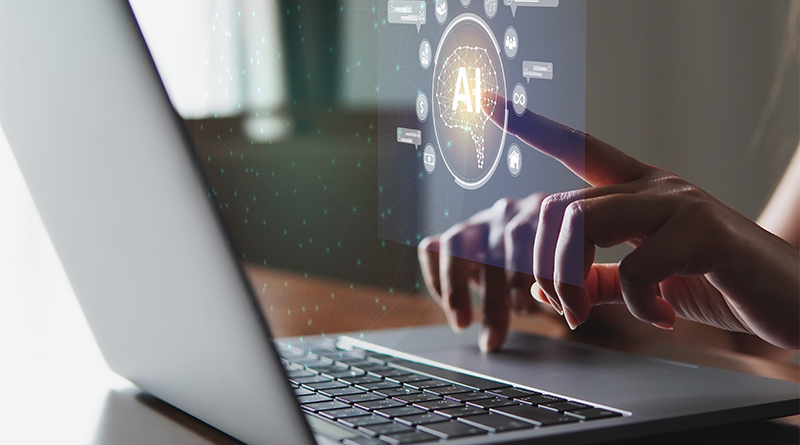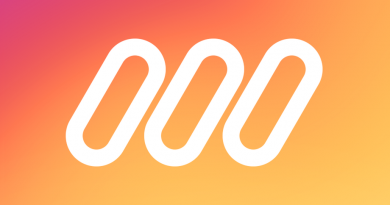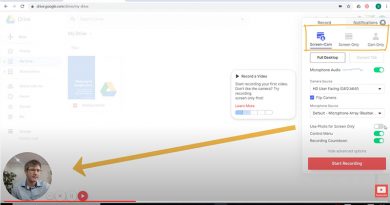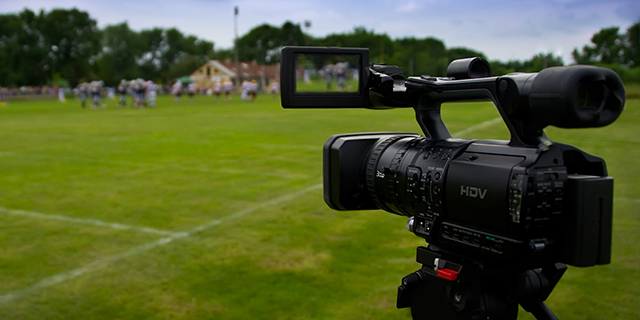Our Growing Reliance on AI for Accomplishing Tasks Has Ethical Implications

Am I a bad person for using AI to help accomplish a task?
Not at all! Using AI to assist you is just leveraging tools available to make things easier. It’s all about how you use it.
This was a short, sweet response I received from the AI tool “ChatGPT” to my question above. I proceeded to converse with the bot to try and get a more definite meaning on “how you are supposed to use AI”, but in short, I was told to “be transparent” when it came to using AI and question everything AI spits out to me. Thanks ChatGPT, that answers all of my questions.
In reality, how you use AI is going to continue to change as the usage of AI tools grows exponentially. In today’s world, new tools are being created left and right either in their own title or seeping into big name brands such as Adobe, Netflix, Youtube, and more. This is the future, and it’s approaching at a rapid pace, so we need to start adapting to these new tools. What better way is there to adapt than using these new tools we’re given? AI has unbelievable potential and can benefit almost every single aspect of life as we know it, doing even the most difficult tasks with ease.
At this point, there is almost no need for human touch besides inputting their problems into an AI engine. That being said, there are many questions and concerns surrounding the gray area of what justifies whether or not it is ethical to use AI, or how often one can use AI, especially in the workplace. From a general viewpoint, there are 6 points when considering the ethics behind AI usage – 1. Unemployment 2. Credibility 3. Bias 4. Programming 5. Diversity 6. Collaboration. Taking all of these points into consideration, the question of whether or not AI can be used in the workplace can properly be discussed.
AI doesn’t belong in the human workplace and here’s why.
AI is inevitably going to be responsible for mass, if not total, unemployment.
Okay, total unemployment might be a tiny stretch, but AI is blindly leading our society into a work recession. The ease with which AI does jobs that would normally take humans 5-10x as long is magical, to say the least; but to some it strikes fear. Living in the advanced digital age, everything, and I mean everything, can be found online; including all of the speculation surrounding the creation and use of AI, which likely doesn’t help with American workers’ anxiety. According to APA’s 2023 Work in America Survey, roughly 4 out of 10 U.S. workers are worried that AI could replace some, if not all jobs in the future.
Another source, Goldman Sachs, a banking investment company, said “Roughly two-thirds of current jobs are exposed to some degree of AI automation, and that generative AI could substitute up to one-fourth of current work.” according to American Progress. If the possibility of mass unemployment is in our near future, there should at least be a few efforts to contain and control the power of AI, but there have been little to no movements made so far. As AI reshapes the job market, concerns over public policy violations such as wrongful termination must be addressed to ensure fair treatment and legal protections for displaced workers.
If AI is used, it isn’t YOUR work.
This argument is one of the most popular when it comes to discussing AI usage. Like I said earlier, there is a lot of gray area (and I mean A LOT) surrounding what determines who the work’s actual creator is if AI is in the equation. Questions like “Am I allowed to use AI to form questions for an interview?” and “Can I use AI to ‘help’ me with my math homework?” are great examples of the difficulty behind the ethics in choosing whether or not to use AI. Now, I believe that AI can be very beneficial to its users in helping them with a problem or situation, but at what point does using AI to “help” a user, differentiate from doing the work for the user? How far along are you allowed to carry AI with you for “help” on an assignment until it can be seen as if the AI is carrying you along? In the classroom, teachers and staff have been attempting to find ways to limit AI use in the classroom.
At my high school, the Wi-Fi specifically outlaws any AI websites, which is a great start, but students have found ways to bypass the blockage by using VPN’s (Virtual Private Network). It almost seems as if simply “blocking” AI from the classroom is nearly impossible. So, what should we do? Some teachers believe that it may be beneficial to embrace AI, while still managing to keep it under control. According to niu.edu, Salem State University professors can decided to allow AI usage on certain assignments under two policies – students must indicate what part of the assignment was written by AI and what was written by the student, and less than 25% of the assignment should be created by AI unless the professor provided specific instructions stating otherwise.
Of course, students can lie and use AI for more than the 25% the professors claim the limit is, but that all comes down to, you guessed it, ethics. If a student is willing to use AI for an assignment, they are already making a negative ethical decision by technically using someone’s (or in this case something’s) work for personal benefit. Going further down the rabbit hole, the more and more information one might use from AI on an assignment, the less and less work the student is actually doing. I’m not necessarily saying using AI in general automatically means you’re a bad person and you aren’t putting forth effort, but if you’re abusing the power of AI to cheat your way through school, work, or activities, that’s when the ethical scale comes into play.
AI and the information it provides is biased.
When someone asks AI a question or presents AI with a problem, AI gathers and combines information it finds from all across the internet to find a common and reasonable answer. Since it uses all sources of information, there is a very high probability that it gathers information from possible biased sources. If someone presents AI with a political question or problem, AI is forced to gather information from multiple news outlets concerning the topic, many of which lean in a certain political stance, which can alter the information they produce and publish.
Not only can AI be biased from the information it gathers, but human input can result in the AI being biased as well. A blog post from the IBM Data and AI team claims that “Bias can be found in the initial training data, the algorithm, or the predictions the algorithm uses.” Due to the flawed nature of human input, AI will almost always have some sort of bias in every answer. Does this necessarily make the answer incorrect? No, but it can give you an altered version of a correct answer, which may not be what you are looking for.
AI does belong in the workplace and here’s why.
AI can be created and trained by humans for specific tasks.
The science fiction version of AI can often give a false impression of what AI can actually do for society. Popular novels and movies like “The Terminator” are meant to scare its audience into believing AI is going to one day rule the world and wipe out the human race, but in reality, AI only exists thanks to human innovation and intellect. In regards to the workplace, AI bots can be specifically programmed to monitor, complete, or plan certain tasks, which can heavily benefit the work environment.
One of these AI bots is Workativ, a conversational AI chatbot meant to solve problems autonomously while still providing a sense of human experience between communicating between the employees and itself. Workativ can be specifically programmed to help employees with any tasks in the workplace, ranging from customer service, human resources, information discovery and monitoring, and more. Programming AI to help employees complete tasks – simple and difficult – allows for a much more efficient workplace by giving employees more time to accomplish work during the day.
If AI is taking care of all of the repetitive tasks during the day and gives the employees freedom to work on other projects, productivity will be heavily increased as well as the employees attitude when they come to work each day. Looking at it from an ethical standpoint, using AI in this regard isn’t necessarily “a negative” on the scale. Yes, AI is still being used, which as I said earlier, is an automatic negative choice on the ethics scale. While I still stand by this claim, if someone or something is using AI in the workplace to improve employee productivity or morale, I believe that tips the scales in favor of using AI. AI being used to complete work for someone and AI being used to improve something are two contradicting factors in the ethical use of AI in the workplace.
AI can improve diversity numbers.
Many jobs, if not all, are acquired through the internet. Whether it is the CEO emailing a future employee that they’ve been hired, or an employee registering for an interview on Indeed.com, the opportunity to get jobs is there for everyone – or is it? If we take a look into the actual hiring process for many jobs, underrepresented groups in race, sexuality, gender, and more are all put at a disadvantage when applying for jobs. With AI managing job applications, bias towards a certain group of people is completely eliminated and gives everyone a fair chance at getting a job. AI could be programmed to disregard the potential employee’s background and focus specifically on their skills and qualifications.
Having this option available for all workplaces is huge for creating a more inclusive workplace and society as a whole. Choosing to use AI for managing applicants for the strict reasoning of creating a more inclusive workplace can definitely be seen as a positive ethical decision and should be considered by many bosses. Continuing on the impact AI has on inclusivity, employees with disabilities now have the option to work to their full potential at their given job. For example, using AI technology to translate real-time conversations to people that are deaf or hard of hearing can allow them to work at the same speed and productivity rate as their peers who have perfect hearing capabilities. Using AI to benefit the employees inside the workplace is a great ethical decision and will benefit the business in the long-term. Furthermore, AI technologies like those used in merchandising solutions such as retailexpress.com can generate accurate demand forecasts, boost productivity, and drive better financial results.
AI can still help with work without doing it for you.
I made a point earlier about how if AI is being used on an assignment or project, the ethical decision-making of the person that used AI is up for questioning. I’d like to elaborate a little more on the importance of keeping track of how many resources from AI you are using at a time. According to Microsoft, “When students rely entirely on AI to complete their school assignments, they are effectively cheating in class as well as cheating themselves.”
Obviously, using AI to do an entire school assignment for you is clearly cheating and is a poor ethical decision, but the real speculation lies in how much AI can be used before a student can be seen as abusing the power of AI. Microsoft claims that once a student fails to learn the material on their own, that is when AI has done too much for them. This is a great way to put the solution because if a student is unable to learn material properly from their given assignment, then using AI is basically telling their instructor that they aren’t willing to put forth the effort to learn, which as you guessed it, is not a great ethical decision.
Using AI to help yourself learn and get better at a certain task or craft is really just another way of practicing self-improvement. Now, I’m not saying you should be dependent on the use of AI in order to learn, but using it once in a while if you’re faced with a difficult prompt or simply undergoing a writer’s block, is completely okay – in my book at least.
So, is AI okay to use in the workplace?
In short, yes, I believe that AI can be used in the workplace without tipping the ethical scale in a negative way. For a longer, more general answer, the question above should be reflected on yourself if you work independently. It is completely up to you whether or not you choose to use AI and if you think it is a proper ethical choice to make. If you work under a boss, of course you should ask this question if you are curious about the topic.
The answer I received from ChatGPT earlier, claiming that the use of AI can be ethically correct but “it all depends on how you use it,” was a fairly open-ended answer to my question, but it wasn’t a bad answer at all. As the human population continues to evolve, inventing new technologies everyday, AI is going to evolve with us – possibly evolving at a faster rate than we do. The methods of which someone can use AI is going to exponentially increase as new tools are created, so it’s important to keep in mind that while these tools are available, you’ve had the best tool in the world before AI was even created – your brain. Don’t forget to use that one!





This is great news!